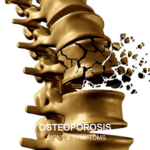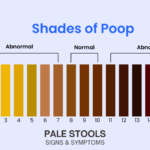Understanding and Addressing Painful Sex: Causes, Treatments, and Solutions
Painful sex, also known as dyspareunia, is a common yet often misunderstood condition that can affect individuals of all genders. It is characterized by persistent or recurrent pain during sexual intercourse, which can have significant physical and emotional repercussions. This article aims to provide a comprehensive understanding of the causes, treatments, and solutions for painful sex.
Causes of Painful Sex
Painful sex can be caused by a variety of physical, psychological, and emotional factors. Understanding the underlying cause is crucial for effective treatment. The causes can be broadly categorized into physical and psychological factors.
Physical Causes
- Infections and Inflammations:
- Vaginal Infections: Conditions such as yeast infections, bacterial vaginosis, or sexually transmitted infections (STIs) can cause inflammation and pain during intercourse.
- Urinary Tract Infections (UTIs): UTIs can lead to discomfort and pain during sex due to inflammation of the urinary tract.
- Gynecological Conditions:
- Endometriosis: This condition occurs when tissue similar to the lining inside the uterus grows outside the uterus, causing severe pain during intercourse.
- Pelvic Inflammatory Disease (PID): PID is an infection of the female reproductive organs that can cause significant pain during sex.
- Vaginismus: This condition involves involuntary muscle spasms of the vaginal muscles, making penetration painful or impossible.
- Hormonal Changes:
- Menopause: Decreased estrogen levels during menopause can lead to vaginal dryness and thinning of the vaginal walls, causing pain during sex.
- Postpartum Changes: Hormonal fluctuations after childbirth can result in vaginal dryness and pain during intercourse.
- Structural Issues:
- Fibroids and Cysts: The presence of fibroids or ovarian cysts can cause pain during deep penetration.
- Congenital Anomalies: Structural abnormalities in the reproductive organs can contribute to painful sex.
Psychological Causes
- Emotional and Mental Health Issues:
- Stress and Anxiety: High levels of stress and anxiety can lead to muscle tension and reduced arousal, making sex painful.
- Depression: Depression can decrease libido and cause physical symptoms, including pain during intercourse.
- Trauma and Past Experiences:
- Sexual Trauma: Past experiences of sexual abuse or trauma can result in fear and pain during sex.
- Negative Sexual Experiences: Previous painful or unsatisfactory sexual encounters can lead to anticipatory anxiety and pain.
Diagnosis of Painful Sex
Diagnosing the cause of painful sex involves a thorough medical and psychological evaluation. Healthcare providers typically follow these steps:
- Medical History:
- A detailed medical history, including questions about sexual history, menstrual cycles, and any existing medical conditions, helps identify potential causes.
- Physical Examination:
- A pelvic exam is conducted to check for signs of infection, inflammation, or structural abnormalities. This may include a visual inspection and palpation of the pelvic area.
- Diagnostic Tests:
- Tests such as swabs for infections, blood tests for hormonal levels, and imaging tests like ultrasounds or MRIs can help diagnose underlying conditions.
- Psychological Evaluation:
- Assessing mental health and discussing any past trauma or emotional issues can provide insights into psychological factors contributing to painful sex.
Treatment Options
Treating painful sex requires addressing the underlying cause, which can vary widely. Here are some common treatment options:
Medical Treatments
- Medications:
- Antibiotics and Antifungals: Used to treat infections causing pain.
- Hormone Therapy: Estrogen creams or hormone replacement therapy can alleviate vaginal dryness and thinning in menopausal women.
- Physical Therapy:
- Pelvic Floor Therapy: Strengthening and relaxing pelvic floor muscles can reduce pain associated with vaginismus and other conditions.
- Surgical Interventions:
- In cases of structural issues like fibroids, cysts, or endometriosis, surgical intervention may be necessary to remove the problematic tissue.
Psychological Treatments
- Counseling and Therapy:
- Sex Therapy: Working with a sex therapist can help address psychological factors and improve communication between partners.
- Cognitive Behavioral Therapy (CBT): CBT can help manage anxiety, stress, and depression that contribute to painful sex.
- Trauma-Informed Therapy:
- Therapy that specifically addresses past sexual trauma can be crucial in reducing pain and improving sexual experiences.
Lifestyle and Home Remedies
In addition to medical and psychological treatments, lifestyle changes and home remedies can also help alleviate painful sex:
- Lubricants:
- Using water-based lubricants can reduce friction and alleviate pain due to vaginal dryness.
- Communication:
- Open and honest communication with your partner about your pain and discomfort can lead to adjustments that make sex more comfortable.
- Relaxation Techniques:
- Practicing relaxation techniques such as deep breathing, meditation, and yoga can reduce stress and muscle tension, making sex less painful.
- Healthy Lifestyle:
- Maintaining a healthy lifestyle, including regular exercise and a balanced diet, can improve overall health and reduce the incidence of painful sex.
Conclusion
Painful sex is a complex issue with a variety of causes, but it is important to remember that it is a treatable condition. By understanding the underlying causes, seeking appropriate medical and psychological treatment, and making lifestyle adjustments, individuals can significantly reduce or eliminate pain during intercourse. If you are experiencing painful sex, do not hesitate to seek help from a healthcare provider who can guide you towards effective solutions and a healthier, more fulfilling sex life.





